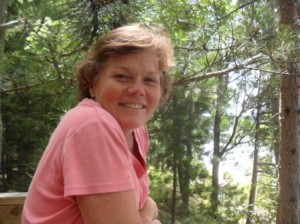Although my day job is working as a neuropsychologist at the Minnesota Epilepsy Group and as a forensic psychologist for the Wisconsin Forensic Unit, my passion is sharing STAR. I took STAR levels I and II in Oct. 2008 and March 2009. Since then, I have been developing, promoting and implementing the STAR I training in Minnesota so that caregivers, leaders and organizations in this part of the country can have the opportunity to learn STAR principles, concepts and models. In particular, I want Minnesotans with limited financial resources to have access to this training and its potential for transformation. I want STAR trainings in our community for caregivers and leaders, but I also want to see STAR in jails and prisons so that defendants have the opportunity to learn how to move out of the cycles of violence and toward reconciliation and healing.
To a large extent my passion for STAR has grown from my legal forensic evaluations. I hear tragic stories of defendants who have shattered the lives of others, but who also have their own histories of personal trauma from childhood, adolescence and into adulthood. I hear stories about the cycles of violence all the time. In these evaluations, I have little opportunity to share about the possibilities STAR has to offer. This is one of the primary reasons I am passionate about making STAR available to all.
 A major focus of my STAR work in Minneapolis has been to raise scholarship funds so any educator, caregiver, professional, paraprofessional, volunteer or community leader who serves vulnerable populations has access to STAR.
A major focus of my STAR work in Minneapolis has been to raise scholarship funds so any educator, caregiver, professional, paraprofessional, volunteer or community leader who serves vulnerable populations has access to STAR.
I believe the STAR concepts apply to everyday traumas as well as major traumas and that the peacebuilding strategies offer alternatives to violent revenge responses. People will always have aggression, injustice and violent options. Our culture teaches them overtly and covertly. But most people are hungry for alternative strategies to responding to aggression, violence and injustice that really work. STAR offers the perspective that there are other options. STAR is also primary prevention for anyone doing peacekeeping, peacemaking and/or peacebuilding work. If you are doing this work, you are working with trauma. These workers need to know how to maximize their potential for self-care and resilience that helps minimize burn out and compassion fatigue.
The first STAR training held in Minneapolis in June 2010 included a rich diversity of 25 participants representing a variety of religious traditions from the Somali, Native American, Asian, Caucasian, African-American and LGBT communities. After that, I was inspired and encouraged to organize additional STAR workshops here. STAR trainings were held in June and September of 2011, and June 2012. We have two others planned for September and October 2012. I founded the Minnesota Peacebuilding Leadership Institute as the administrative organization that raises scholarship funds and hosts STAR trainings in Minnesota.
I have accomplished this by working with STAR EMU in the certified training program and with the guidance and support of a 15-member community-based advisory committee. We received funding from Spread the Peace grant from Mennonite Church USA, for STAR’s development. Scholarship contributions come from individual donors, churches and a family foundation. My flexible work schedule allows me to pursue this passion to share STAR.
I have a vision of multiple STAR I workshops to be held in Minneapolis over the next five years and to develop the Minnesota Peacebuilding Leadership Institute as a program site for STAR in Minnesota. In the future, the Minnesota Peacebuilding Institute will also sponsor training resources in trauma awareness, restorative justice, nonviolent peacemaking and conflict transformation, and apply these concepts and principles to special populations such as combat vets, groups with historical harm, immigrants and refugees, LGBT homeless youth and those affected by bullying.
Donna Minter, Ph.D., L.P., has practiced neuropsychology and forensic psychology for over 15 years in Minnesota and Wisconsin. She and her husband Bruce Brunner enjoy riding recumbent bikes on the many wonderful bike trails in Minneapolis and she hikes in the woods whenever possible. She is an active member of Faith Mennonite Church in Minneapolis.
Interested in starting STAR in your community? Contact star@emu.edu and get in touch with Donna at 612-377-4660 or STAR.Mpls@gmail.com to hear more about how to get started.

I wish to apply for membership and training with the EMU.
STAR EMU in the certified training program and with the guidance.training resources in trauma awareness, restorative justice, nonviolent peacemaking and conflict transformation, and apply these concepts and principles to special populations such as combat vets, groups with historical harm, immigrants and refugees, LGBT homeless youth and those affected by bullying.I will also like to open an office in Ghana so as to become a member
You’ll want to contact the STAR program directly, and you can do so by emailing Jennifer Fawley (jennifer.fawley@emu.edu) or by calling 540-432-4490.